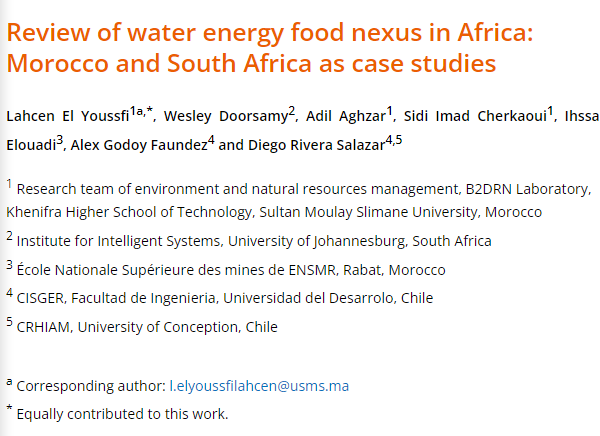Abstract:
The population of the African continent is significantly increasing which has given rise to societal, economic and environmental changes. This will generate an increase in demand for food, water and energy. Thus, strategies for sustainable management of natural resources need to be adopted urgently in order to match the future needs and to ensure sustainable development on the continent. The Water Energy Food (WEF) nexus is one the avenues for studying the current and future interactions and interdependencies of the WEF sectors under different scenarios and challenges in the effort towards establishing sustainable use of natural resources. Policies around the nexus approach are few or absent at the continental and country levels. This paper is a first review on the adoption of the Nexus in two model African countries, Morocco and South Africa. The review compares the water, energy and food sectors and the related national policies, plans and frameworks. The data related to the WEF Nexus revealed key difficulties of availability in both countries. A comparative analysis of the situation in both countries demonstrated differences in policies relating to the WEF Nexus across the sectors: water, energy, and agriculture. Additionally, the paper explores the relevance of technology-assisted frameworks for the WEF nexus and also analyzed risks to agriculture and food security in the context of the reviewed countries.
Read full article here!
Copyright by:

El Youssfi, L., Doorsamy, W., Aghzar, A., Cherkaoui, S. I., Elouadi, I., Faundez, A. G., & Salazar, D. R. (2020). Review of water energy food nexus in Africa: Morocco and South Africa as case studies. In E3S Web of Conferences (Vol. 183, p. 02002). EDP Sciences.
